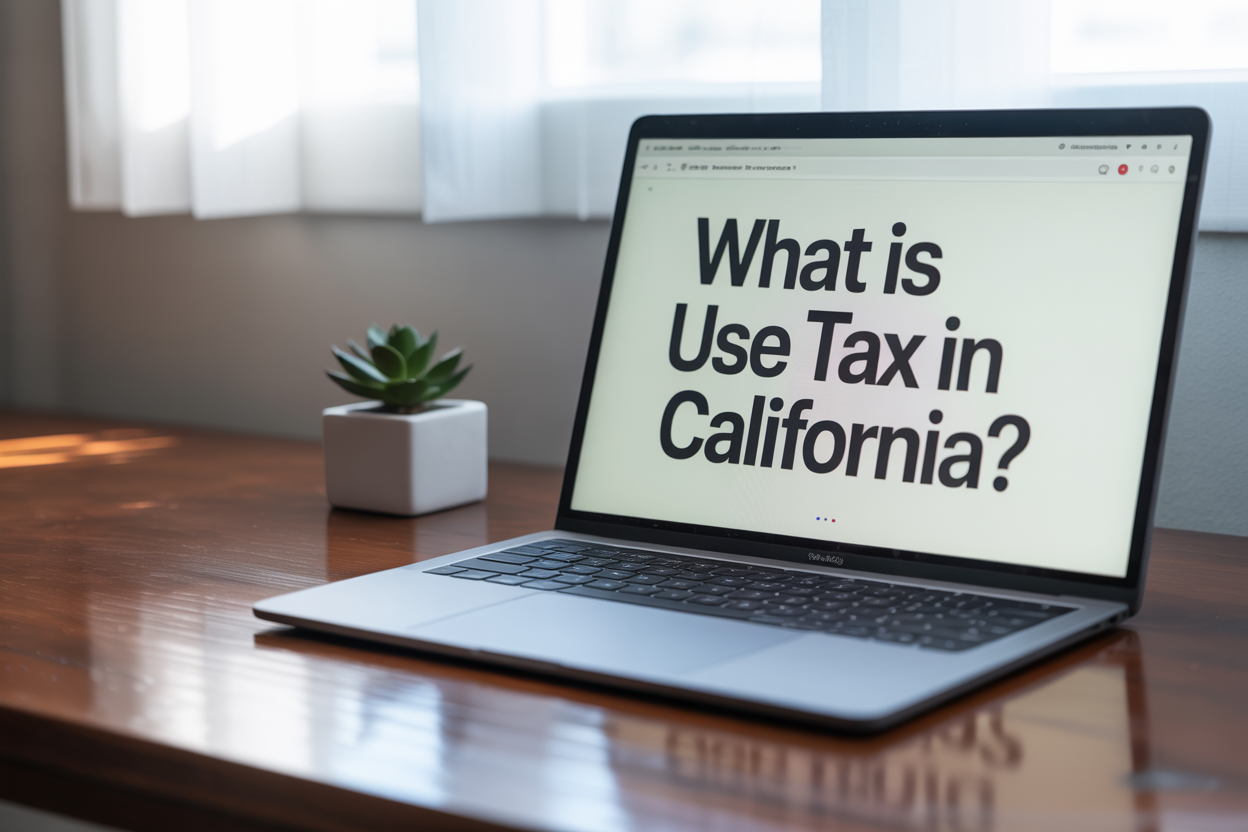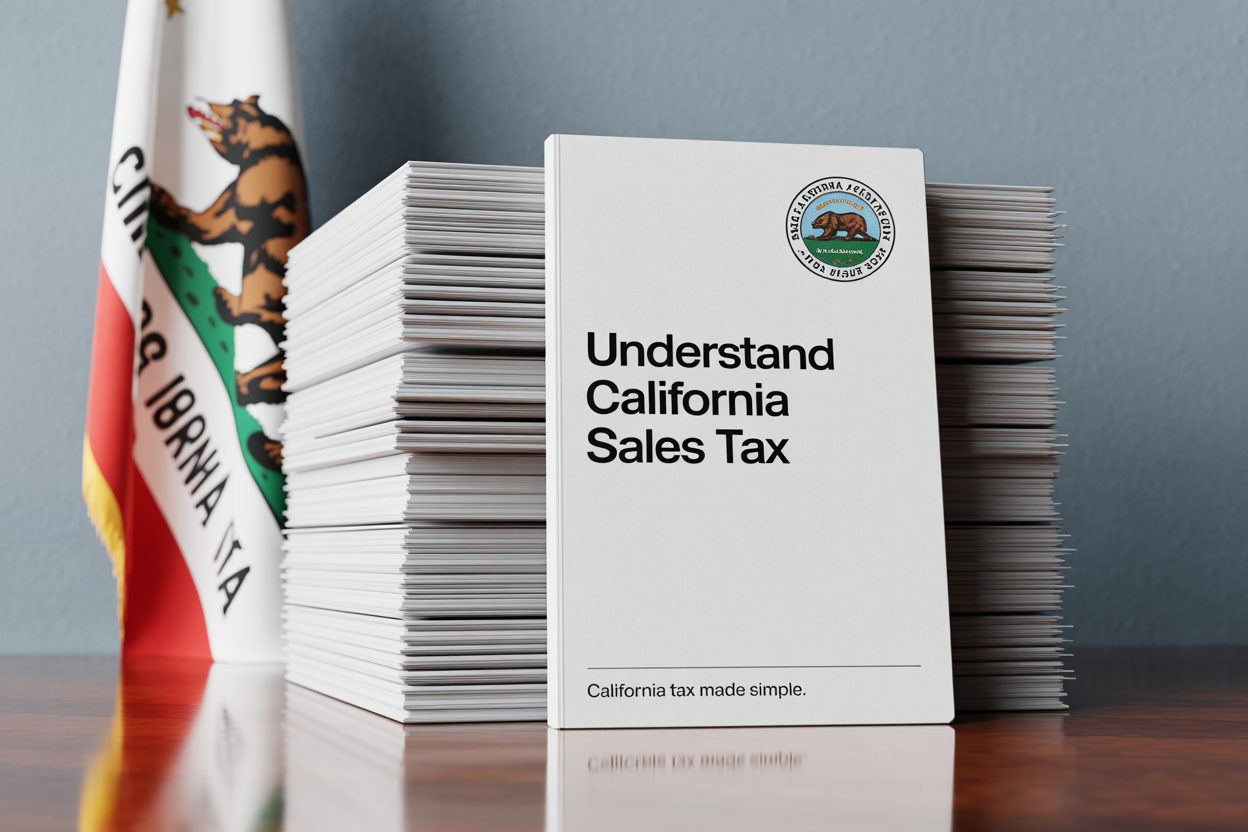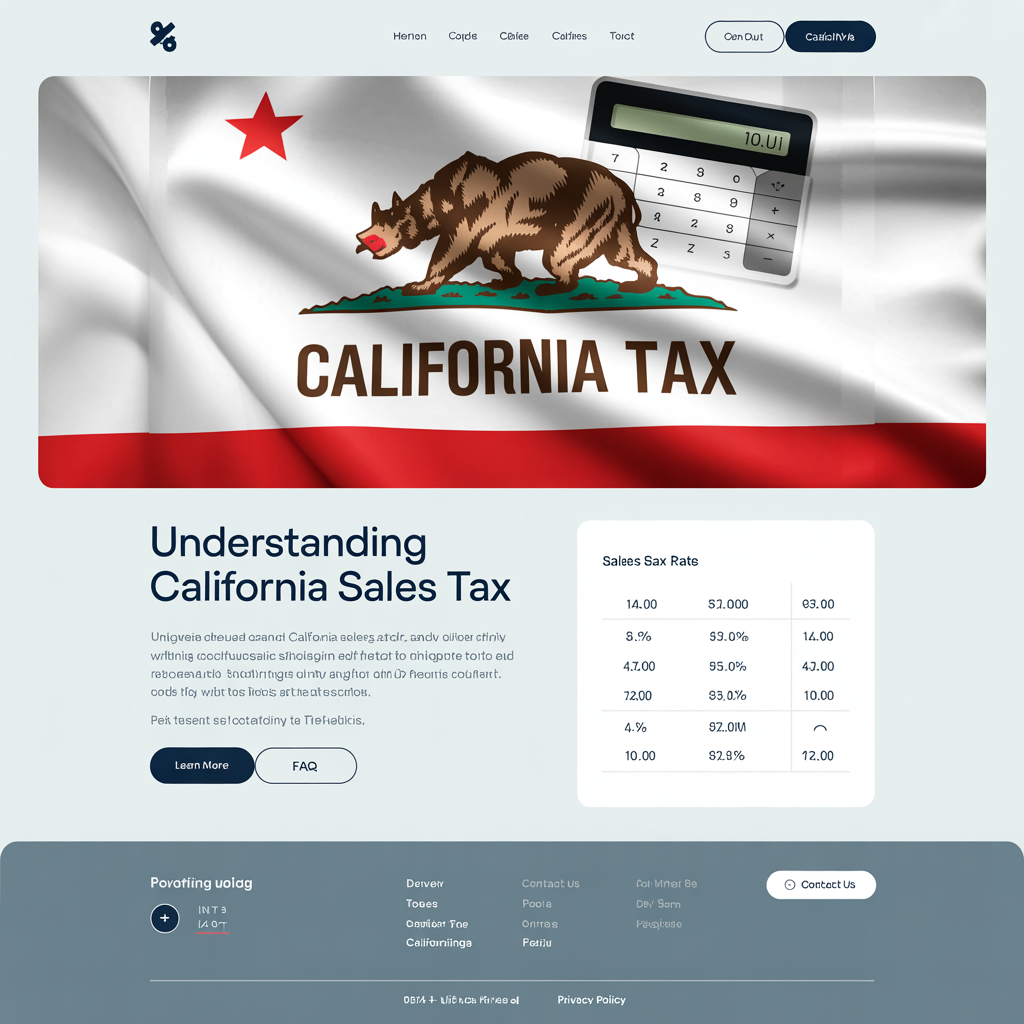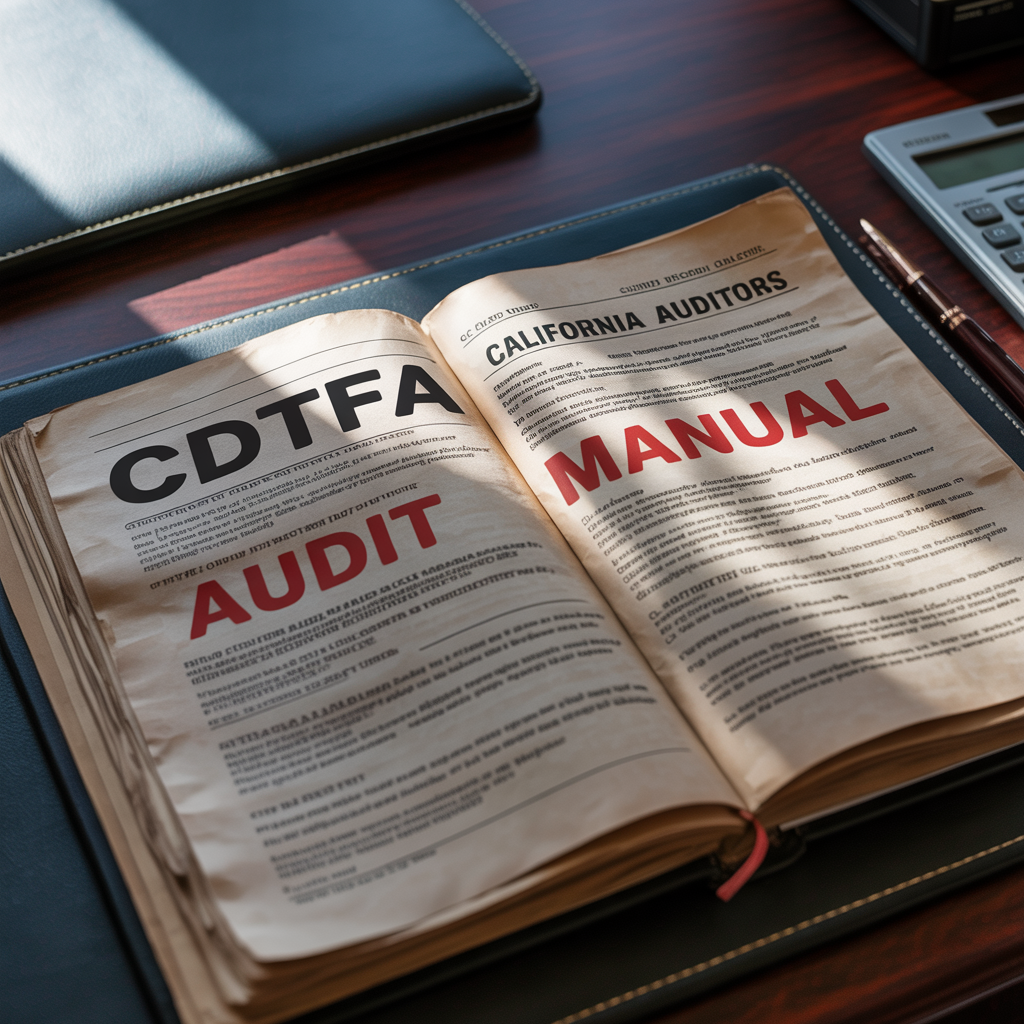CDTFA Sales Suppression Audits Explained – What California Business Owners Need to Know
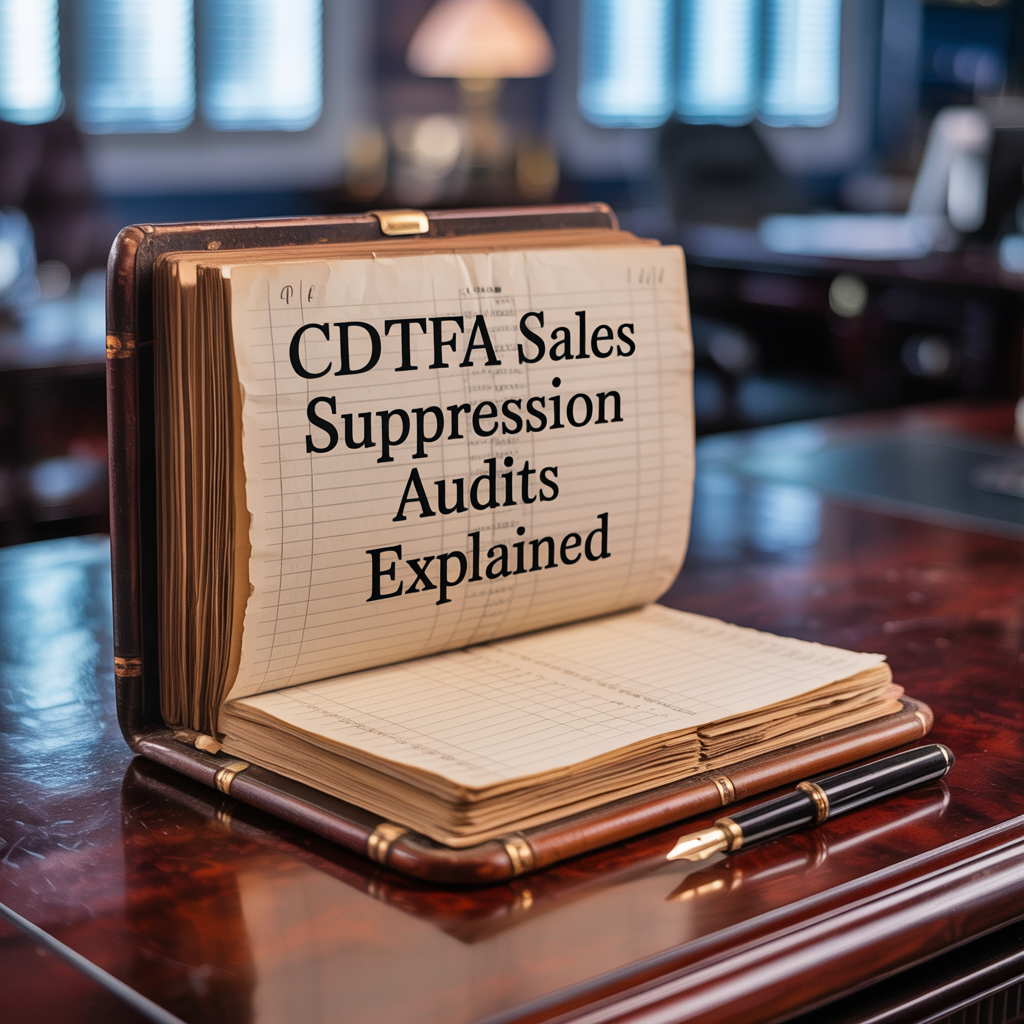
If you operate a cash-heavy or point-of-sale–dependent business in California, you could face one of the toughest audits out there: the CDTFA Sales Suppression Audit. Unlike standard reviews, these audits carry serious criminal overtones and often overlap with CDTFA audit red flags for online sellers, restaurants, and other businesses prone to cash transactions.
At Boulanger CPA and Consulting PC, we specialize in sales tax audit defense in California. Whether you’ve received an audit notice, are worried about potential exposure, or just want to protect yourself in advance, this guide will walk you through what you need to know.
What Is Sales Suppression?
Sales suppression is the intentional or accidental underreporting of sales—often cash sales—by manipulating your point-of-sale (POS) system, deleting transaction records, or using “zapper” software to skim data before reporting.
Common examples include:
- Deleting sales from the POS system
- Using dual sets of books (one for reporting, one for internal use)
- Adjusting Z-tape totals before submitting to the CDTFA
- Using software that modifies or hides real sales numbers
- Skimming cash sales before they hit your books
Restaurants are especially vulnerable—many business owners search for a restaurant sales tax audit survival guide after learning how invasive these investigations can get.
What Triggers a Sales Suppression Audit?
Sales suppression audits are often triggered by:
- Discrepancies between POS reports and sales tax returns
- Cash-heavy business models with inconsistent deposits
- Anonymous tips (from ex-employees, competitors, or customers)
- Unusual ratios in audit sampling (e.g., food costs to sales in restaurants)
- High refund or void activity in your POS data
- Audit patterns from prior CDTFA reviews or BOE audits
- Out-of-state equipment purchases not reported properly
Once the CDTFA suspects suppression, the case is escalated—and auditors are instructed to assume fraud until proven otherwise.
What Happens During a CDTFA Sales Suppression Audit?
Expect a highly detailed and invasive audit process, including:
1. Technology Review
Auditors may request access to:
- POS hardware and software
- Z-tapes and end-of-day summaries
- Internal sales journals
- Merchant service statements
- Any devices used to track customer orders (e.g., tablets, mobile registers)
2. Forensic Sales Testing
The CDTFA uses industry benchmarks to estimate what your sales should have been. If actual reported sales fall outside this range, they’ll perform a markup or ratio analysis to estimate underreported tax.
3. Bank Statement Reconciliation
Auditors compare your deposits to reported gross receipts. If there are unexplained cash gaps, they’ll assume sales were suppressed.
4. Evidence Gathering
They may issue subpoenas, contact vendors, or even visit your location to observe operations.
What Are the Penalties for Sales Suppression?
Penalties can be severe—and in some cases, criminal.
- 100% fraud penalties on unpaid tax
- Referral to the California Attorney General for criminal prosecution
- Permanent sales tax permit revocation
- Personal liability for owners or corporate officers
- Back tax assessments for 3–8 years
- Interest and fines that exceed the original tax owed
When CDTFA claims suppression, it’s no longer a normal review—it becomes a fight for survival. That’s why cases often involve challenging CDTFA audit findings and negotiating settlements to avoid business closure.
Real-World Example
A restaurant owner in Los Angeles was audited after an anonymous tip claimed they were “skimming” cash. The CDTFA discovered their POS system had a hidden export feature that omitted certain transactions. The business faced $284,000 in assessed tax, interest, and penalties. We were brought in post-audit and successfully negotiated a reduction in penalties and a manageable payment plan—but it could’ve been avoided with proper documentation and representation from the start.
This is a common situation—clients frequently need help negotiating a CDTFA audit balance after the state proposes unrealistic assessments.
How to Defend Against a Sales Suppression Audit
If you've received a CDTFA audit notice—or suspect one is coming—here’s what we recommend:
1. Hire Representation Immediately
Sales suppression cases are not DIY audits. You need someone who understands CDTFA procedure and sales tax defense.
2. Lock Down Your Records
Secure copies of all sales reports, POS data, Z-tapes, merchant statements, and tax returns.
3. Don't Talk to Auditors Alone
Even casual statements can be used to support a fraud theory. Let your CPA or attorney handle communications.
4. Prepare a Legitimate Reconciliation
If discrepancies exist, they may be explainable through timing differences, returns, theft, or system errors.
5. Correct Problems Before the Audit
If you're using outdated or questionable POS software, now is the time to fix it. Switch to a reputable provider, ensure secure reporting, and archive your sales data correctly.
Proactive Tips to Avoid Sales Suppression Allegations
- Use
cloud-based POS systems with tamper-proof audit trails
- Retain all
Z-tape reports and end-of-day summaries
- Back up sales data externally and securely
- Conduct periodic
internal reconciliations between reported sales and deposits
- Provide formal training for staff on cash handling and refund procedures
- Limit
manager-level overrides and voids in your POS settings
We Defend Business Owners Statewide
Boulanger CPA and Consulting PC represents business owners across California—especially in industries most likely to be targeted:
- Restaurants and food trucks
- Grocery and liquor stores
- Vape and tobacco shops
- Nail salons and barber shops
- Car washes and detailers
- Cannabis retailers
- Any cash-heavy or POS-driven business
Whether you run a brick-and-mortar store or an online business, our defense strategies apply across industries. To learn more, explore our resources and explore more in Defend What’s Yours—a guide built for California business owners under tax scrutiny.
Don’t Let a Software Setting Turn Into a Six-Figure Problem
Sales suppression allegations can destroy your business and your reputation. If you've been contacted by the CDTFA—or suspect your sales records might trigger scrutiny—get ahead of it.
📞 Call (657) 218-5700 or Schedule a Confidential Audit Consultation
Frequently Asked Questions
What is sales suppression?
Sales suppression is the underreporting of taxable sales, often using software or techniques to delete or hide cash transactions from sales records.
Why does CDTFA target sales suppression?
The CDTFA considers sales suppression a form of tax fraud. Businesses that underreport sales may face severe penalties, interest, and even criminal charges.
How does CDTFA detect sales suppression?
Auditors use credit card-to-cash ratio analysis, industry benchmarks, and POS system reviews to identify discrepancies suggesting hidden sales.
What industries are most at risk?
Cash-heavy industries such as restaurants, liquor stores, vape shops, and convenience stores are frequent CDTFA audit targets for sales suppression.
What are the penalties for sales suppression?
Penalties may include back taxes, civil fines, interest, and criminal prosecution in extreme cases. Suppression cases often carry higher consequences than standard audits.
Can CDTFA audits trigger IRS audits?
Yes. Sales suppression findings are often shared with the IRS and the California Franchise Tax Board, creating additional audit exposure.
Should I hire a CPA for sales suppression defense?
Yes. Professional representation is critical when facing suppression allegations, as penalties are severe and defense requires careful strategy.
Internal Links to Include
- Sales Tax Audit Defense – CDTFA
- How to Survive a Restaurant Sales Tax Audit
- What to Expect in a California CDTFA Audit
- Can You Settle Sales Tax Debt in California?
📣 About the Author
Marc Boulanger, CPA is the founder of Boulanger CPA and Consulting PC, a boutique tax resolution firm based in Orange County, California and trusted by high-income individuals and business owners across Southern California.
He is the author of Defend What’s Yours: A California Taxpayer’s Guide to Beating the IRS and FTB at Their Own Game, available now on Amazon. The book offers a step-by-step plan for resolving IRS and FTB tax debt without losing your business, your home, or your peace of mind.
With over a decade of experience resolving high-stakes IRS and State tax matters, Marc brings strategic insight to complex cases involving wage garnishments, bank levies, unfiled returns, and six-figure tax debts. He is known for helping clients reduce or eliminate tax liabilities through expertly negotiated settlements and compliance plans.
Marc is a Certified Public Accountant licensed in California and Oklahoma and holds the designation of Certified Tax Representation Consultant. He is a member of the American Society of Tax Problem Solvers (ASTPS) — the national organization founded by the educators and practitioners who have trained thousands of CPAs, EAs, and tax attorneys in IRS representation strategy.
Every case is handled with discretion, proven methodology, and direct CPA-led representation — not call center scripts.
📍 Learn more at www.orangecounty.cpa or call (657) 218-5700.

